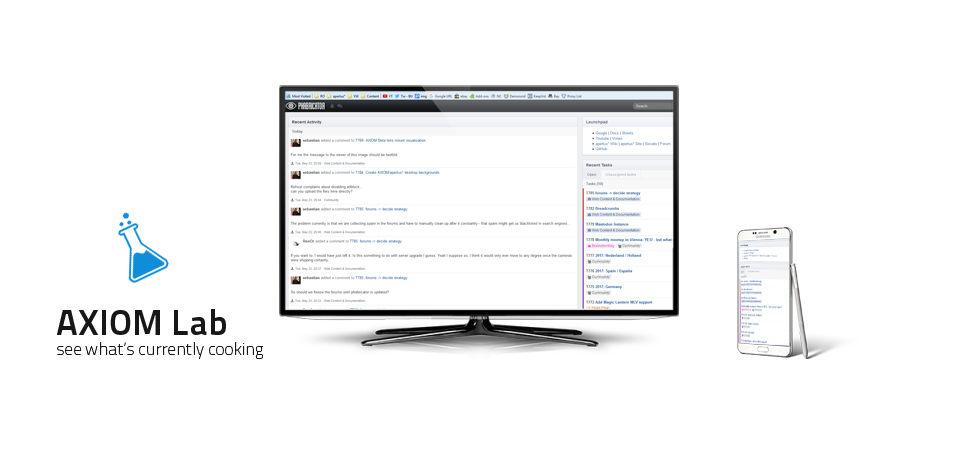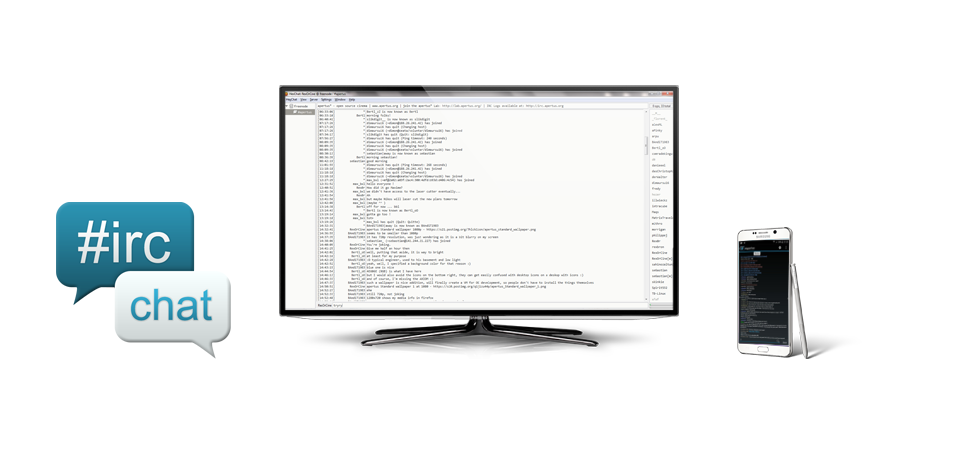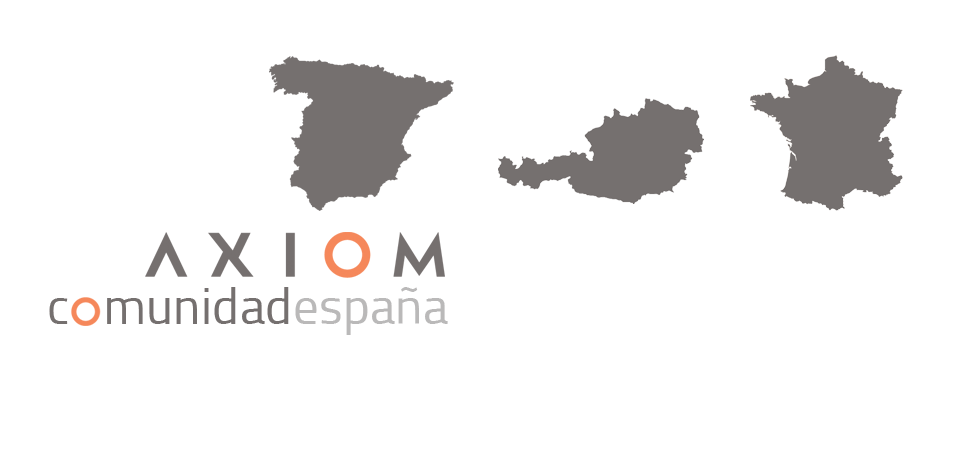Join the Team
This page in other languages:
Anyone is free to contribute towards and help steer project developments. How integral you become in the community and in what way is entirely up to you.
The Association doesn't typically make demands of people but if you need pointers on what needs to be done and how you could be useful then feel free to make contact, introduce yourself and describe what skills you have.
1 Basic First Steps:
1.1 AXIOM Labs
Sign-up for membership of our Labs - This is important because our phabricator labs work like a forum with some extra performance modules, most aspects of project development are discussed here. It has a rich content history of ideas dating back years.
The user interface lists the most recent activity but there are task-specific categories such as AXIOM Beta Hardware, which has sub-categories for things like enclosure and connector tasks, AXIOM Beta Software, or general Brainstorming if you'd like to contribute or discuss ideas.
If you have FPGA related experience and are fluent in VHDL or Verilog, QEMU and languages PHP or C/C++, then you may want to have a look at the GSoC Workboard as some of these tasks are outstanding and if you'd like to participate you'll find reading and links there. Please also see Mission Briefings for task priorities.
1.2 IRC
IRC - This is a live chat facility that, despite its shortcomings, has proved to be a reliable central platform for immediate communications.
Community members should create a username and ideally select a client. There are many clients for both desktop and mobile including Hexchat (Desktop), AndroIRC (Mobile), and many others.
- Main chat: #apertus
- Address: irc.freenode.net
- Port (if required): 6667
We also run a web-client IRC portal on apertus.org if you'd like to communicate straight away without installing clients etc. It's like a shout-box and reliability is inconsistent.
A list of IRC commands can be found here, IRC Communications in the main channel are publicly logged here, and previous team meetings are archived here. If you have questions about the camera but work with a commercially sensitive project we'd be happy to set up a meeting inside a private channel for you, if this is something that would interest you please email us.
You may also want to read through the apertus° mission statement and association bylaws to find out how we serve the community.
2 Advanced Steps:
The English language is generally accepted as default language for communication, however there are regional communities developing around the world. These are administered by APOCs or AXIOM Community Points of Contact. Make contact with your local APOC and find out how your immediate community functions, if there are any events scheduled and if you can assist them in some way.
This is good for getting hands-on experience with the cameras, contributing towards productions which happen to be using them, accessing equipment, or building your networks - the community is filled with a lot of very helpful and skilled people.
If there is no APOC administering on behalf of your local community then perhaps this is something you’d like to be considered for, in which case please make contact.
2.1 Raising Awareness
The motto "Many hands make light work" is very much applicable to all aspects of AXIOM project development. If you don't code, shoot video or take photographs, and if you agree with the open source ethos or like what the project represents, there are still things you can do to assist. One important necessity is promotion. All of our current social accounts are listed here if following channels and sharing developments is something you'd like to help with.
2.2 Project Languages
- AXIOM Micro is a low-cost camera platform which allows anyone to contribute to software development and support an inexpensive, open hardware recording solution.
- We're building a RAW video footage processing environment called OpenCine - Programming Language: C++. OS should primarily be Linux (Ubuntu and derivatives like LinuxMint) as changes aren't adjusted for Windows straight away. OpenCine.Build Instructions. There is a sub-project called ProcessingTest, which is used for prototyping and testing algorithms, there you can find some de-Bayering tests.
- We develop hardware with FPGAs for doing real-time video processing - Programming Language: HDL (VHDL or Verilog).
- Our cameras run embedded Linux and there are some Kernel related development tasks - Programming Language: C.
- Other tasks are related to creating a camera virtualisation in QEMU, webinterfaces for camera control, controlling lenses, drawing histograms/waveform/vectorscopes from the cameras live view data or automating the camera internal darkframe calibration. Programming Languages for tools: C/C++, for scripting: Python and Bash, and for web-based applications: Javascript, PHP and C/C++.
If you'd like to jump straight to outstanding tasks and their respective development status please see Mission Briefings.
The projects being worked on inside the community have the potential to help you build your network, improve your skills, become more intimately involved with open source technologies in general, to grow and advance your own goals, and the apertus° Association’s responsibility is to provide the support you might need throughout your journey. Unlike manufacturers who’ve previously dominated the technological development associated with film making we aren’t profit orientated so the more you assist with these projects the more we can assist you.


